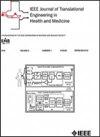致编辑的信:"生物医学工程师如何帮助增强智障人士的能力?人工智能技术在支持包容性和改变生活方面的潜在益处和挑战"。
IF 4.4
3区 医学
Q2 ENGINEERING, BIOMEDICAL
IEEE Journal of Translational Engineering in Health and Medicine-Jtehm
Pub Date : 2023-11-09
DOI:10.1109/JTEHM.2023.3331977
引用次数: 0
摘要
人工智能(AI)的飞速发展正在改变医疗保健和日常生活,在带来巨大机遇的同时,也带来了伦理和社会挑战。为确保人工智能惠及包括智障人士在内的所有人,重点应放在能够适应用户独特需求的自适应技术上。生物医学工程师拥有跨学科背景,这有助于他们领导多学科团队开发以人为本的人工智能解决方案。这些解决方案可以实现个性化学习、加强交流,并改善智障人士的无障碍环境。此外,人工智能还有助于医疗保健研究、诊断和治疗。必须强调在医疗保健领域使用人工智能的道德性,以及人工智能与人类专业知识的合作。鼓励为包容性研究提供公共资金,促进公平和经济增长,同时增强社会中智障人士的权能。本文章由计算机程序翻译,如有差异,请以英文原文为准。
Letter to the Editor: “How Can Biomedical Engineers Help Empower Individuals With Intellectual Disabilities? The Potential Benefits and Challenges of AI Technologies to Support Inclusivity and Transform Lives”
The rapid advancement of Artificial Intelligence (AI) is transforming healthcare and daily life, offering great opportunities but also posing ethical and societal challenges. To ensure AI benefits all individuals, including those with intellectual disabilities, the focus should be on adaptive technology that can adapt to the unique needs of the user. Biomedical engineers have an interdisciplinary background that helps them to lead multidisciplinary teams in the development of human-centered AI solutions. These solutions can personalize learning, enhance communication, and improve accessibility for individuals with intellectual disabilities. Furthermore, AI can aid in healthcare research, diagnostics, and therapy. The ethical use of AI in healthcare and the collaboration of AI with human expertise must be emphasized. Public funding for inclusive research is encouraged, promoting equity and economic growth while empowering those with intellectual disabilities in society.
求助全文
通过发布文献求助,成功后即可免费获取论文全文。
去求助
来源期刊

IEEE Journal of Translational Engineering in Health and Medicine-Jtehm
Engineering-Biomedical Engineering
CiteScore
7.40
自引率
2.90%
发文量
65
审稿时长
27 weeks
期刊介绍:
The IEEE Journal of Translational Engineering in Health and Medicine is an open access product that bridges the engineering and clinical worlds, focusing on detailed descriptions of advanced technical solutions to a clinical need along with clinical results and healthcare relevance. The journal provides a platform for state-of-the-art technology directions in the interdisciplinary field of biomedical engineering, embracing engineering, life sciences and medicine. A unique aspect of the journal is its ability to foster a collaboration between physicians and engineers for presenting broad and compelling real world technological and engineering solutions that can be implemented in the interest of improving quality of patient care and treatment outcomes, thereby reducing costs and improving efficiency. The journal provides an active forum for clinical research and relevant state-of the-art technology for members of all the IEEE societies that have an interest in biomedical engineering as well as reaching out directly to physicians and the medical community through the American Medical Association (AMA) and other clinical societies. The scope of the journal includes, but is not limited, to topics on: Medical devices, healthcare delivery systems, global healthcare initiatives, and ICT based services; Technological relevance to healthcare cost reduction; Technology affecting healthcare management, decision-making, and policy; Advanced technical work that is applied to solving specific clinical needs.
 求助内容:
求助内容: 应助结果提醒方式:
应助结果提醒方式:


